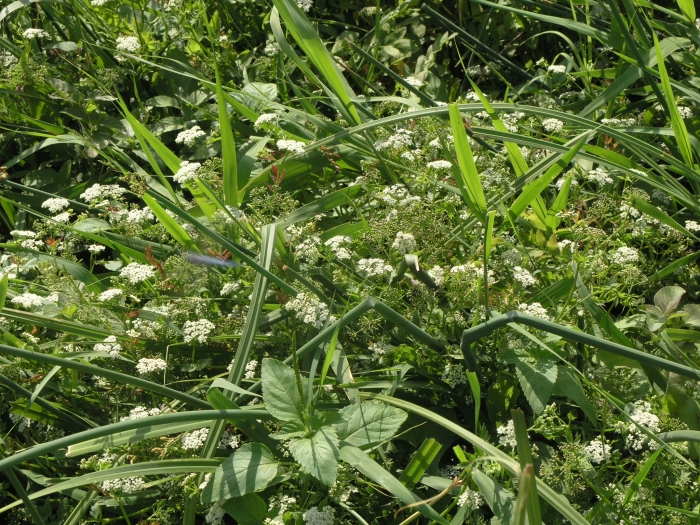Skirret
(Sium sisarum)
Skirret (Sium sisarum)
/
/

© Oleg Kosterin
CC BY 4.0
Image By:
© Oleg Kosterin
Recorded By:
Copyright:
CC BY 4.0
Copyright Notice:
Photo by: © Oleg Kosterin | License Type: CC BY 4.0 | License URL: http://creativecommons.org/licenses/by/4.0/ | Uploader: oleg_kosterin | Publisher: iNaturalist |

























Estimated Native Range
Summary
Sium sisarum, commonly known as skirret, is a perennial herb that is part of the Apiaceae family. It is native to marshy areas in China and has been cultivated since ancient times, reaching Europe by Roman times where it became a favorite of Emperor Tiberius. Skirret is notable for its clusters of sweet, white, fleshy roots, each about 6-8 inches long, which are consumed as a root vegetable similar to parsnips. The plant typically grows to about 3 feet in height and features umbels of small white flowers during the summer months, adding a delicate touch to the garden. Its foliage is pinnate with an overall feathery appearance.
Skirret is valued for its sweet-tasting roots, which are harvested in winter when they are most tender. It is often used in heritage and cottage gardens, as well as in vegetable plots. Skirret prefers sandy, moist soil and is resistant to cold, making it a hardy choice for cooler climates. It requires consistent moisture and can tolerate partial shade, although it flourishes in full sun. While it is generally pest and disease resistant, it can occasionally suffer from carrot fly or root rot in poorly drained soils. Skirret can be propagated from seeds or by dividing the roots in early spring or late autumn. It is not commonly found in modern cultivation but is gaining popularity among enthusiasts of heirloom vegetables and those interested in historical gardening.CC BY-SA 4.0
Skirret is valued for its sweet-tasting roots, which are harvested in winter when they are most tender. It is often used in heritage and cottage gardens, as well as in vegetable plots. Skirret prefers sandy, moist soil and is resistant to cold, making it a hardy choice for cooler climates. It requires consistent moisture and can tolerate partial shade, although it flourishes in full sun. While it is generally pest and disease resistant, it can occasionally suffer from carrot fly or root rot in poorly drained soils. Skirret can be propagated from seeds or by dividing the roots in early spring or late autumn. It is not commonly found in modern cultivation but is gaining popularity among enthusiasts of heirloom vegetables and those interested in historical gardening.CC BY-SA 4.0
Plant Description
- Plant Type: Herb
- Height: 2-3 feet
- Width: 1-1.5 feet
- Growth Rate: Moderate
- Flower Color: White
- Flowering Season: Summer
- Leaf Retention: Deciduous
Growth Requirements
- Sun: Full Sun, Part Shade
- Water: Medium
- Drainage: Medium
Common Uses
Edible*Disclaimer: Easyscape's listed plant edibility is for informational use. Always verify the safety and proper identification of any plant before consumption., Low Maintenance, Water Garden
Natural Habitat
native to marshy areas in China and has been cultivated since ancient times, reaching Europe by Roman times where it became a favorite of Emperor Tiberius
Other Names
Common Names: Skirwort, Crummock
Scientific Names: , Sium sisarum, Apium sisarum, Apium sisarum var. lancifolium, Berula lancifolia, Carum sisarum, Pimpinella sisaroidea, Pimpinella sisarum, Pimpinella sisarum, Pimpinella sisarum var. lancifolia
GBIF Accepted Name: